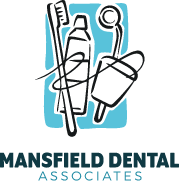When a tooth begins to decay, bacteria can spread and eventually infect your dental pulp. The dental pain symptoms can vary between dull and sharp; in one spot or all over your mouth; chronic or intermittent. When you have sudden dental pain you may find that it is triggered by something such as pressure or extreme temperature exposure. With all of the nerves and tissues in your mouth sharing the same tight spot, it’s no wonder that it may be difficult to ascertain where the pain in your mouth is stemming from. Mansfield dentists, Dr. Jones and Dr. Harris, will impart you with knowledge to try to better solve the mystery of the source of your dental pain.
Gum Tissue Abscesses
Occasionally, infection in a tooth or the roots of teeth can spread all the way up to the periodontal ligament. This can end up causing problems with gum tissue, such periodontal pockets resulting in a painful gum abscess. When you present with an abscess of gum tissue or a tooth, you can probably pin-point the source more easily, because the pain will probably be more localized. Infection that starts in the tooth but then spreads to the gums is called a primary endodontic-secondary periodontal problem. (more…)





Recent Comments